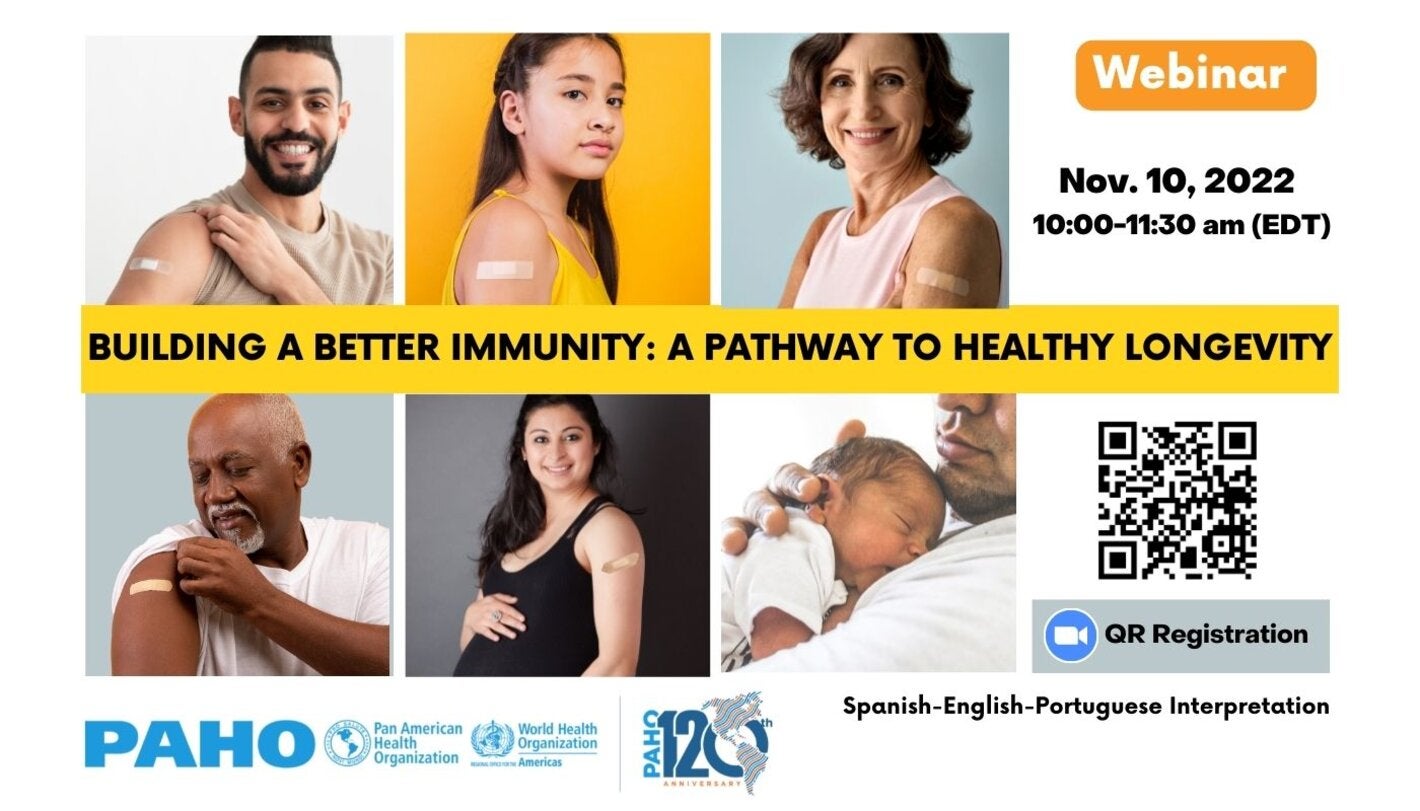
Date/Time: Thursday, November 10 / 10:00 am - 11:30 am (EDT - Washington DC Time) Time Zone Converter.
PAHO carried out the webinar "Building Better Immunity: A Path to Healthy Longevity." The panelists discussed the implications for the present and future of the life course approach in the fields of medicine and public health, as well as to better understand the existing applications of this approach to immunization programs in the region and the world.
Since the second half of the 20th century, life lifespan has increased by more than 20 years. In the Americas, it is projected that nearly 80% of people born today will live more than 60 years, and approximately 40% are expected to live more than 80 years. With this trend in motion, the concept of the democratization of longevity is competing with the “natural selection” process and is testing the capacity of individual and population immunity to provide protection across the life course.
Today, when life expectancy has almost doubled and the world is facing a rapid demographic transition, a person’s immune system is remodeled in older age. With time, this leads to a decline in immune efficacy, resulting in increased vulnerability to infectious diseases, diminished responses to vaccination, and a susceptibility to age-related inflammatory diseases.
The life course approach to immunization considers immunity as a health feature and an evolving capacity that develops dynamically over time and across generations. Immunization focuses on maximizing heathy life trajectories as its objective, protecting individual’s during important life transitions, and identifying critical moments across the life span where certain interventions have a higher long-term efficacy.
Through immunization, the health of individuals can be maximized at each stage of the life course, not only by preventing specific infectious diseases but training the plasticity and resilience of the immune system to develop long-lasting positive effects for individuals. These individual benefits accumulate to produce society-wide impacts on health and economies, with an intergenerational influence . Immunization is a public health intervention (including immunotherapies) that can be adjusted to close the immunity gaps of each age group, thus reducing the impact of disease, and increasing the body’s capacity for health until very late in life.
Objectives:
1) To present the biological framework of immunity across the life course and define its core principles and processes.
2) To describe the practical considerations of the life course approach to be integrated into existing Expanded Programs on Immunization (EPI).
Preliminary Agenda:
